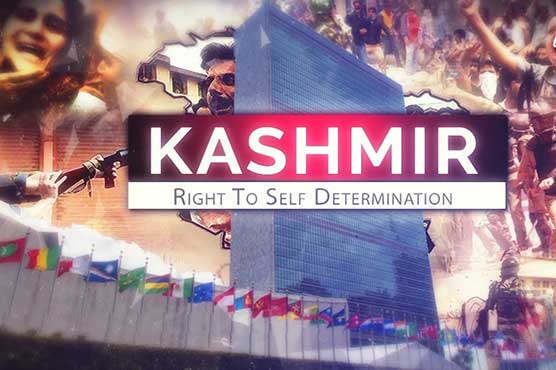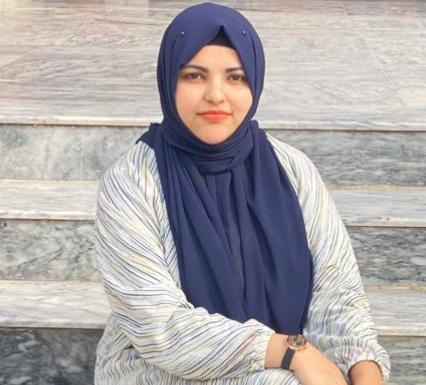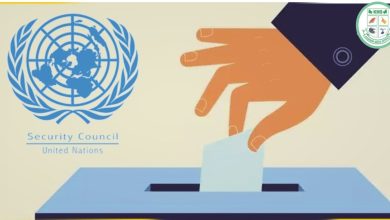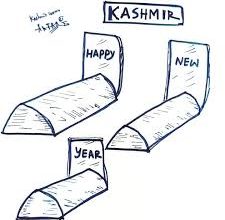Article: Right to Self-Determination Day: A call for Freedom and Justice


January 5th is commemorated as Right to Self-Determination Day by the people of Jammu and Kashmir across the divide and overseas. It serves as a solemn reminder to the United Nations Security Council (UNSC) and the international community of the promises made to the people of Kashmir — the pledge to allow them to decide their political future through a free and fair plebiscite.
This day not only honors the sacrifices and struggles of the Kashmiri people but also draws attention to the ongoing hardships they face in their pursuit of self-determination. It serves as a stark reminder of the Indian military brutality endured by the Kashmiri population, and the continuous efforts to achieve their fundamental right to self-determination. The Kashmir issue, a deeply rooted conflict between India and Pakistan since 1947, remains unresolved and is brought into focus on this day.
Right to Self-Determination Day underscores the urgency of addressing this longstanding dispute, which continues to affect the lives of millions in the region and shapes the geopolitical dynamics of South Asia. It calls for renewed international attention to ensure that the aspirations of the Kashmiri people are respected, and that the promises made to them are fulfilled.
The day is dedicated to reflecting on the region’s tumultuous past, the ongoing violations of human rights in Indian illegally occupied Jammu and Kashmir, and the urgent need for a peaceful resolution. It is a day to honor the courage, resilience, and unwavering determination of the Kashmiri people, who continue their struggle for freedom and the recognition of their fundamental rights.
The right to self-determination is a cornerstone of human rights and an essential principle of international law, enshrined in the United Nations Charter, the Universal Declaration of Human Rights (UDHR) and subsequent international covenants. This right embodies the freedom of a people to determine their political status and pursue their social, cultural and economic development without external coercion. For the people of IIOJK, the denial of this fundamental right since 1947 represents a grave breach of international commitments and a negation of their inherent dignity and freedom.
The United Nations’ commitment to the Kashmiri people’s right to self-determination was affirmed on January 5, 1949, when the United Nations Commission on India and Pakistan (UNCIP) adopted a resolution calling for a free and impartial plebiscite. This resolution, endorsed by the UN Security Council, remains a critical legal foundation for resolving the Kashmir dispute. Despite these assurances, the people of IIOJK have been denied their right to self-determination for decades, enduring a long history of human rights violations and systemic oppression.
The situation in IIOJK has worsened in recent years, with grave violations of fundamental rights, including the rights to life, health, education and freedom of expression. Following India’s illegal and unilateral revocation of Kashmir’s special status under Article 370 in August 2019, the region has witnessed unprecedented levels of militarization and repression. The territory has been transformed into one of the most militarized zones globally, where arbitrary detentions, enforced disappearances and curfews are routine. The collective punishment inflicted on the Kashmiri population is a flagrant violation of international humanitarian law.
Right to Self-Determination Day serves as a critical reminder of the ongoing crisis in Kashmir, emphasizing the need for action that goes beyond mere symbolic gestures. To resolve this long-standing dispute, the international community must take meaningful and decisive steps. Given the United Nations’ involvement in the Kashmir issue since 1948, it carries a significant responsibility in addressing the situation. The resolutions passed by the UN Security Council, which call for a plebiscite to allow the people of Kashmir to determine their own fate, remain unfulfilled.
Moreover, the actions of the Indian government in Kashmir have faced widespread condemnation, raising serious concerns about human rights violations and the treatment of the Kashmiri people. The international community must apply pressure on India to release political prisoners, ensure the protection of human rights, and engage in genuine dialogue with the leaders of Kashmir. Only through these efforts can there be hope for a peaceful, just, and prosperous future for the Kashmiri people.
The rights and dignity of the Kashmiri people are at stake in the conflict, which goes beyond a simple territorial dispute between India and Pakistan. The world community must back the Kashmiri people’s fight for freedom and justice and acknowledge their right to self-determination.
The international community, particularly the United Nations, has a moral and legal responsibility to uphold the Kashmiri people’s right to self-determination. While Pakistan has consistently extended moral, political and diplomatic support, the realization of this right requires renewed global attention and action. The Kashmiri people’s struggle resonates with other successful movements for self-determination in the post-colonial era, highlighting the universal aspiration for freedom and dignity. Honoring the promises made under UN resolutions and ensuring a free and fair plebiscite is essential to achieving a just and peaceful resolution to the Kashmir dispute.
Noshiza Rani is a student at IIUI, pursuing a degree in IR and currently serving as an intern at KIIR.








